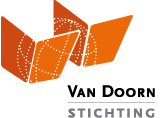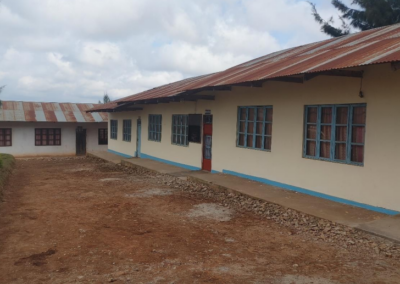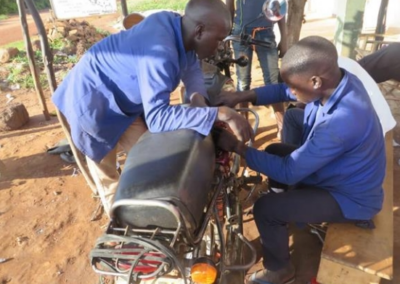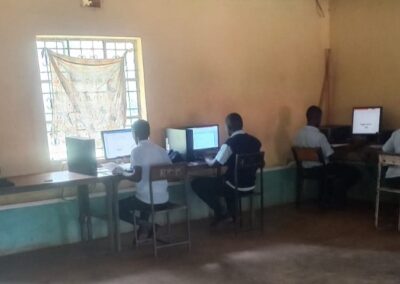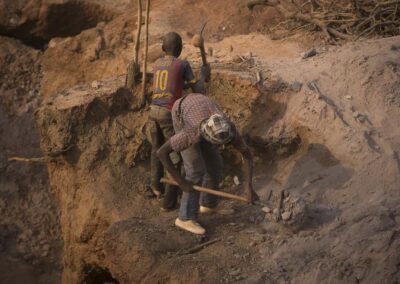The Bethleem Foundation in Cameroon wants to increase the capacity of its training centre from 50 to 150 students per year and thereby providing the ”most at risk youth” training so they have a better chance on the labour market and less chance to end up in a criminal circuit or in terrorist organisations.
Amount collected: € 6.500,-
Sponsors: KWA bedrijfsadviseurs
Project information
The situation
Young people in rural areas have limited access to vocational training centres that are all concentrated in cities. Most young people survive this uncertain future with small informal trade; some become involved in criminal activities and, worse, some join terrorist groups such as Boko Haram.
The importance of the project
The apprenticeship system allows these “most at risk youth” at the end of the training to find work on the labour market either being employed or self-employed. Since the centre was established, there has been on average 50 young people per year training for the different professions. However, the demand for training is many times larger.
The students who follow here a vocational training are young people from the most northern and poorest part of Cameroon, and among them many orphans, half-orphans, street children and handicapped children.
The implementing organisation
Bethleem Foundation has classrooms, dormitories for boys and girls, and large workshops for woodworking and metalworking.
The envisaged project results
The organization sets itself as ultimate goal:
• The centre has sufficient qualitative and quantitative training resources;
• The centre is capable of teaching young people qualifying professional skills that the local market requires, and the centre can offer this training to a larger group of young people;
• The centre is able to create various objects and items and thereby generate additional income;
• The unemployment rate among young people is decreasing, the crime rate is lower and the alliance with terrorist groups is reduced; and
• The centre is more and more recognized and known throughout the region
The chance of sustainability
The intended practice-oriented training courses must make it possible for students to make assignments, delivering products that can be sold, and generate the necessary income for the centre enabling it to fund the course material themselves.
Progress of the project
KWA Bedrijfsadviseurs initially made € 4,000 available for additional tools and training material, for two vocational courses (woodworking and metalworking). In January 2020, 128 students enthusiastically started their education, which was subsequently suspended until October 2020 due to the Covid-19 pandemic.
In 2021, KWA Bedrijfsadviseurs made another € 2,500 available for the purchase of training material for a third, tailoring course.
The results
Additional classrooms, workshops and dormitories have been built with support from the European Union, and additional tools and training materials for the various courses have been purchased with donations from KWA Bedrijfsadviseurs (€4,000 in 2020 and (€2,500 in 2021).
CFAAM has therefore been able to expand the capacity of the vocational school from 50 to 150 students per year. The school has also managed to generate sufficient income for the running costs of the school and thus to be financially independent.
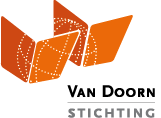
Dear visitor,
We are grateful that you are willing to support us with a donation!
Please fill in the fields below and push the button PAY to transfer the amount by iDeal.
